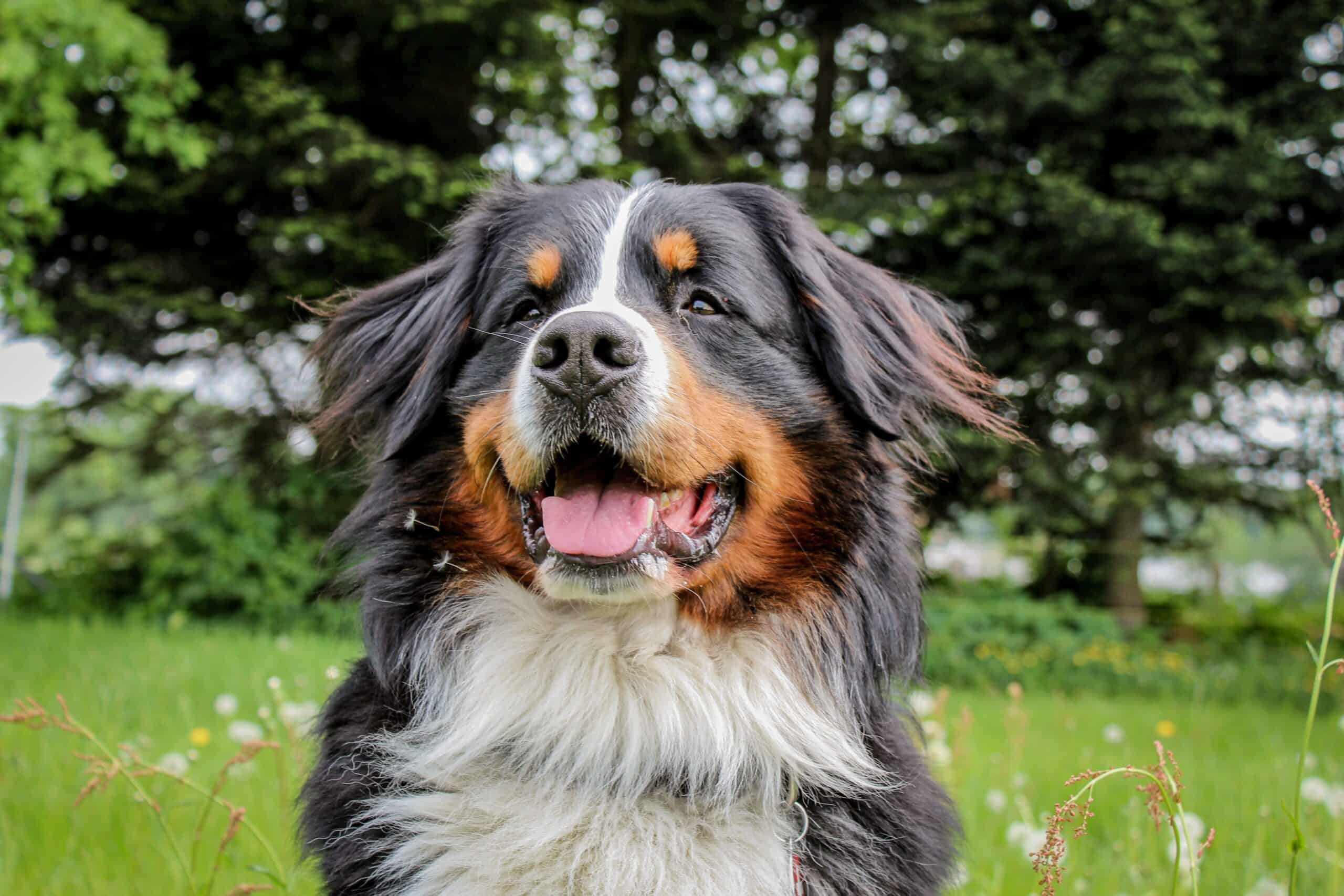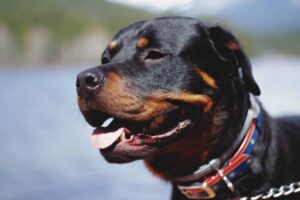Top 5 Dog Breeds Most Likely to Get Cancer

A cancer diagnosis for your pet can be incredibly scary. No matter his or her age or health history, it can still be a shock to hear this news from your veterinarian. And while we can’t ever definitely answer the question “Will my dog get cancer in their lifetime?”, we can share some important insight into what may cause cancer in dogs and the dog breeds prone to cancer.
Just like humans, cancer in dogs is a very common health risk that they may develop at some point in their life. While you can’t always prepare for such health risks, extensive research has determined which specific dog breeds are more prone to developing this disease than others. It is important to understand and continue to educate yourself on this matter to better recognize early signs and take the necessary steps toward treatment.
Here are the top 5 dog breeds prone to cancer:

Rottweiler
Rottweilers are known for their amazing companionship and loyalty to their owners. Unfortunately, they are one of the breeds most likely to get cancer. With a lifespan of 8 to 11 years, Rottweilers, as they get older, tend to naturally develop major health problems. Some of these health problems include hip dysplasia, bone cancer, elbow dysplasia, and gastric torsion. Despite a higher risk of developing some form of cancer in their lifetime, we can’t ignore the affection they show to their family members – young and old.

Bernese Mountain Dog
Bernese Mountain Dogs are known for their thick and silky fur coat and their calm and confident demeanor. Studies have shown that Bernese Mountain Dogs experience higher rates of possibly developing some form of cancer in their life. Unlike other dog breeds, Bernese Mountain Dogs tend to have a shorter life span, ranging from around 6 to 9 years (in part due to their large size and the fact they are one of the dog breeds prone to cancer and other ailments). To maintain their high-energy, active lifestyle, it is important they receive a moderate amount of exercise daily. Major health problems that affect Bernese Mountain Dogs include hip dysplasia, elbow dysplasia, gastric torsion, and mast cell tumors. While this breed may be prone to a number of diseases, including cancer, they make amazing additions to any family, as they are incredible with both adults and kids!

Bouvier des Flandres
Bouvier des Flandres are known for being fearless and effective farm dogs. Weighing around 70 to 110 pounds, with a 10-12 years lifespan, these dogs make perfect protectors. However, despite being an excellent watchdog, they have also made our list of dog breeds most likely to get cancer. Due to their longer lifespan, this is a very common health risk older dogs develop. The other health risks they can encounter can include elbow dysplasia, hip dysplasia, subaortic stenosis (heart disease), and glaucoma. While some of these health issues may never appear, it is important to know about them and talk with your vet about them so you can catch early symptoms and take preventative measures to mitigate their impact.

German Shepherd
German Shepherds are known for their incredible intelligence and unquestionable loyalty. These qualities have made them the perfect service dogs and family pets. Their ability to retain training, keen sense of smell, and courage have proven useful to police for over 100 years. In order to maintain their active lifestyle, German Shepherds need plenty of exercises to stimulate their minds and bodies. Like many other dogs with a lifespan of up to 12 years, health risks are likely to occur. In time, they may develop cancers, hip dysplasia, arthritis, and hemophilia, to name a few. Health risks in animals and humans are inevitable, but educating yourself on the specifics of your dog’s breed will help you prepare and determine the perfect match for your family.

Great Dane
Great Danes are known for their large and graceful appearance. They have proven to be very affectionate with their owners and young children, even though their size may be intimidating at first! Great Danes can be as tall as 32 inches and weigh up to 175 pounds! Due to the nature of their size, it is important to know the appropriate amount of exercise needed to sustain their health. It is also important to consider the responsibility of owning a large dog with a life expectancy of up to 10 years. With time comes health issues, including osteosarcoma, cardiomyopathy, and gastric torsion. The genetic make-up of a Great Dane can play a factor in determining which health risks they are more prone to developing, but these gentle giants make the perfect addition to any family needing protection.
Will My Dog Get Cancer?
Remember that no one can tell if your pet will develop cancer over his or her lifetime, but that should never deter you from welcoming a furry friend into your family! While there are dog breeds prone to cancer, this disease can, unfortunately, affect every breed (purebreds and mutts included).
And while there is no definitive way to prevent cancer in dogs, making sure your four-legged friend has regular visits to the vet and the proper care at home can help mitigate the risk of cancer developing. It’s also important to stay vigilant of any signs of cancer in your pet. While dogs instinctively may try to hide their pain from us, these are just a few of the things to look for that could be a sign of cancer in dogs:
- Abnormal growths or lumps, which are often the most telling as you can feel them when you play or pet your furry friend
- Loss of appetite and weight loss, or a general disinterest in the things that typically make them excited (i.e., mealtime, playtime, car rides, etc.)
- Difficulty eating, swallowing, or breathing. Or, in general, difficulty going about their daily routine
- Difficulty urinating or defecating or finding blood in either urine or stool
- Sores on the skin that do not heal or may bleed or have discharge
- If your pet starts to avoid using a certain body part, which you may see as lameness. Or if your pet shows a new aversion to being touched in certain areas
No one wants their pet to develop cancer, but it’s sadly something that can occur due to old age, genetics, or an unhealthy lifestyle.
If you are looking to add a furry friend to your family, we hope this info will better help you understand the long-term responsibility all animals play in our lives to best determine the perfect fit for your family!
Planning to get insurance for your fur babies? This article provides a guide to understanding pet insurance.



